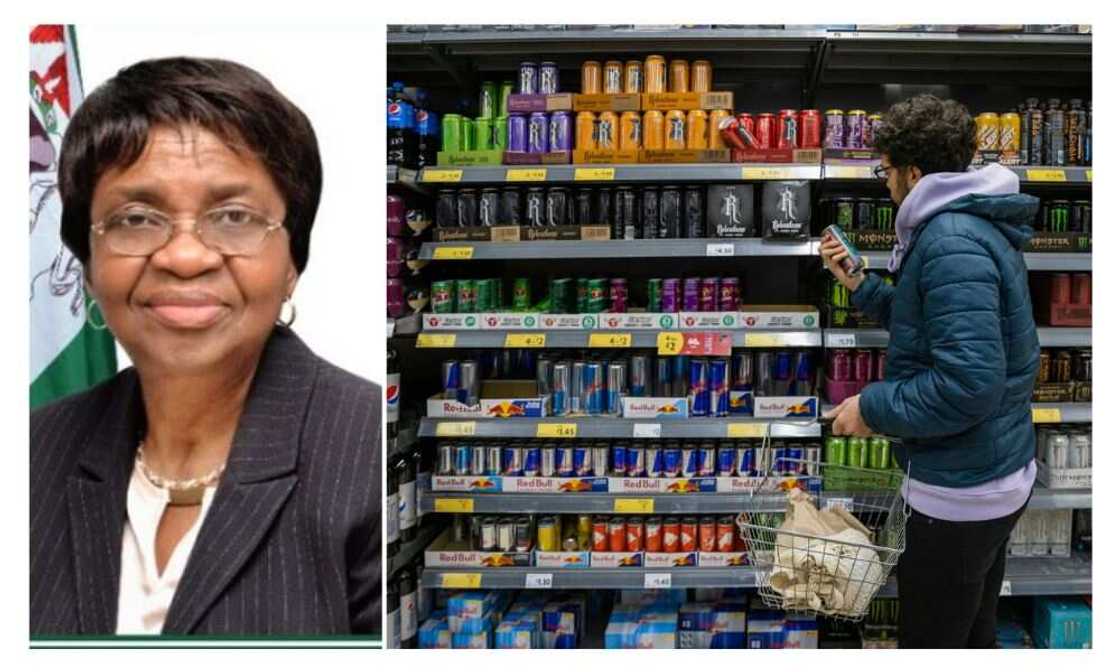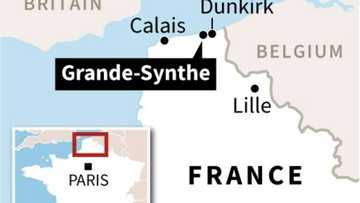Nigerian Consumers Call For Ban on Imported Energy Drinks
- Nigerian consumers have asked the Nigerian government to halt the importation of energy drinks
- They say that the imports deprive Nigeria of the much-needed foreign exchange, leading to the fall of the Naira
- Also, the importation of energy drinks into the country leads to job losses as Nigeria loses about N104 billion yearly
According to recent data, the energy drink market in Nigeria is estimated to hit $3.45 billion in 2023.
Compared to global trends, the United States produces and exports energy drinks to the rest of the world, leading to global dominance by American brands.

Source: Getty Images
Nigerians call for ban in imported energy drinks
In the first three months of 2023, the energy drink market generated over $700 million for the US market, leading to per-person revenue of $15.54.
PAY ATTENTION: Join Legit.ng Telegram channel! Never miss important updates!
Therefore, a consumer rights protection group, Concerned Consumers (CC), has raised the alarm about the vast amount of over N104 billion Nigeria loses annually to the imported energy drinks trade.
Reeling out figures to support their call for a ban on imported energy drink brands, CC convener Olufemi Odebunmi and Rufai Rimi, Co-convener, said that over 300,000 Nigerians would be employed gainfully if the market was allowed to grow indigenously.
They estimate that an average number of 1,800 and 2,000 containers of energy drinks are brought into the country annually, with each container containing 2,600 cases, at the going price of N18,000 and N20,000 per case, amounting to an estimated loss of N104 billion to Nigeria annually.
The CC officials said if the trade continues unchecked, it will lead to the closure of local industries leading to massive job losses, an increase in unemployment, and scarcity of foreign exchange, allowing the Naira to depreciate further.
The conveners queried the continuous exclusion of imported energy drinks from the Import Prohibition List (Trade).
The said:
"If fruit juice in retail packs is banned, then energy drinks ought to be banned, ought to have been banned, and should be now be included, not excluded from the Import Prohibition List as its exclusion is inimical to the local industry growth and the health of the citizenry including financially with the engagement of scarce Dollars in the pursuit of such Importation."
The officials drew attention to a circular issued by the Federal Ministry of Finance on March 20, 2015, titled Import Prohibition List (Trade) Annex III, which states that goods and products whose importation into Nigeria is prohibited.
"Curiously, fruit juice in retail packs was banned by Nigeria along with water, mineral water, aerated water containing added sugar or sweetening matter flavored, other non-alcoholic beverages and beer and stout, and the only exception was energy or health drinks," the group said.
Energy drink import leads to job losses and revenue loss
According to them, part of the interest in import prohibition is to eventually lead to local production, which can be seen in Nigeria's growing fruit juice industry.
Energy drinks fall into the category of ready-to-drink fruit juice, which importation of same in whatsoever mode and means has remained banned in Nigeria since 2003.
The officials disclosed that imported energy drink brands dominate over 85 percent of the market. The locally manufactured brands are all struggling as they need more international exposure and recognition to match imported ones.
Nigerians to pay more for beverages, sweetened drinks as Federal Government enforces N10/Litre Sugar Tax
Legit.ng reported that the federal government had announced the start of a N10 per litre sugar tax on carbonated sugar drinks and beverages, which it claims would assist battle Noncommunicable Diseases (NCDs).
The Chief Superintendent of Customs, Department of Excise, Free Trade Zone and Industrial Incentives, Dennis Ituma, announced in Abuja, Daily Trust reports.
The National Action on Sugar Reduction (NASR) organized the event to discuss strategies to implement tax and other interventions to reduce the consumption of Sugar-Sweetened Beverages (SSBs) in Nigeria.
Source: Legit.ng





